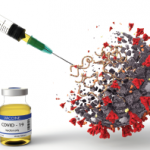CHICAGO—In a session titled Rheumatology on the Hill: The State of Play in Washington, D.C., during ACR Convergence 2025, Christina Downey, MD, chair of the Government Affairs Committee, described ongoing committee efforts to advocate on behalf of its members a variety of ways, including its annual May Hill day in which ACR and ARP volunteers meet with members of Congress. She cited a number of legislative wins through this effort, such as winning support in an early draft of the reconciliation package for updating the Medicare Physician Fee Schedule (MPFS) annually for inflation in accordance with Medicare Economic Index (MEI), and progress on the Patients Before Middleman Act to unlink pharmacy benefit manager (PBM) income from drug prices they negotiate in Medicare Advantage D plan.
One May Hill priority was to ask Congress to stop cutting NIH grants and funding. The ACR also sent letters to Congress and the Trump Administration recommending that more than 47 billion dollars be allocated to the NIH in 2026 Congressional appropriations bill, that they preserve and fund the CDC Arthritis Program, and that Congress maintain language that would prohibit NIH from implementing the proposed 15% facilities and administrative indirect cost cap.
She emphasized advocacy is nonpartisan and member driven, and shared a way members can track legislative action online.
More Federal Policy Updates
Lennie Shewmaker McDaniel, JD, the ACR’s senior director of Government Affairs and Advocacy, updated members on public policy issues affecting rheumatology practices, including cuts to Medicare reimbursement, prior authorization reform, step therapy reforms, prescription drug pricing and access to biosimilars. McDaniel also discussed advocacy efforts for more support for the medical workforce, the use of telehealth and the need for federal funding for biomedical research.
McDaniel, who led the session, said advocacy efforts are more difficult in the current climate where the margins in both the U.S. House and Senate are so thin that no new legislation is probable, and that all healthcare issues are basically on hold during the current federal shutdown. During the shutdown, she emphasized, one of the biggest concerns is to ensure rheumatology patients can still access clinical care via telehealth given it is no longer reimbursed as of October 1. “We are working to preserve access for our patients during the shutdown, but there is no predicting of how long this will last,” she said, saying the ACR is supporting a bill to re-implement telehealth access and ensure a stable and reliable reimbursement structure.




